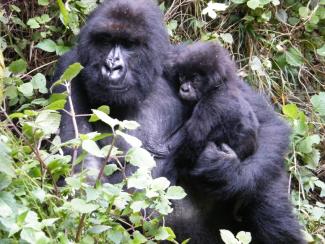International cooperation
Monkey business

A recent book, which was edited by Dirk Messner and Silke Weinlich (2016), points out that the conventional theories of international affairs are distorted because of poor understanding of human nature (also see http://www.dandc.eu/en/article/why-conventional-theories-international-relations-are-distorted). In their own essay, Messner and Weinlich argue that human beings differ substantially from “homo economicus”, the idea of the rational and selfish individual on which economics is modelled and which has had massive impact on political science as well.
Messner and Weinlich acknowledge, however, that homo economicus exists, adding immediately that he “is a great ape”. This is not a joke, as biologist Alicia P. Melis elaborates in her contribution to the book. Her message is that human infants are much more interested in – and better at cooperation – than young apes.
Melis bases her argument on research done with small children who are about 18 months old. At that age, their language skills are still quite rudimentary, and they cannot have adopted the social values of their families yet. Nonetheless, they show a level of empathy with other people and an interest in cooperating with them that are not evident in young apes. For instance, young humans notice when another human being shows signs of distress. They want that person to be helped. To the extent that they can, they try to offer help themselves. Young apes, Melis writes, are more self-centred.
Experiments have been done with young apes and children. They had to cooperate to get a banana or other food they liked, for instance by both pulling on opposite ends of a rope. In such cases, children and apes would cooperate with peers. If, however, an individual could do the job alone, chimpanzees would normally prefer to do so, whereas young humans tended to cooperate for cooperation’s sake. If, moreover, the human toddlers retrieved food together they would normally share it fairly, whereas apes were more inclined to cheat.
In the course of socialisation, children later obviously adopt the norms of their communities and societies. Humans have complex institutions apes are incapable of building. According to Melis, however, human cooperation relies on a natural predisposition rather than only the socialisation process.








